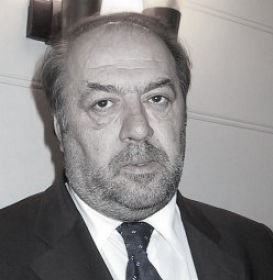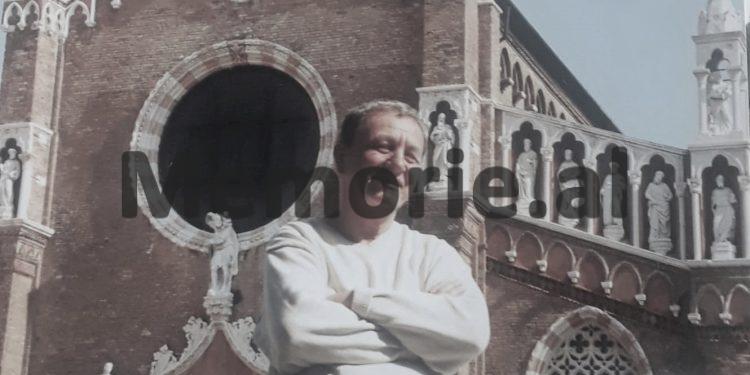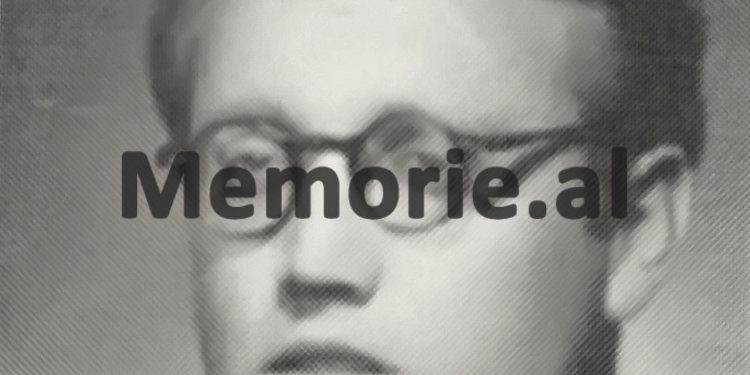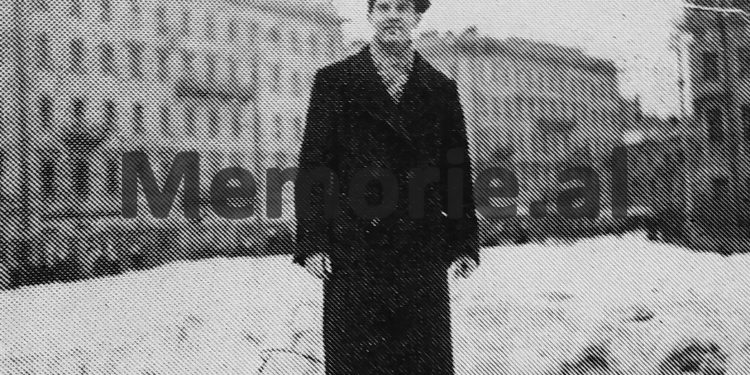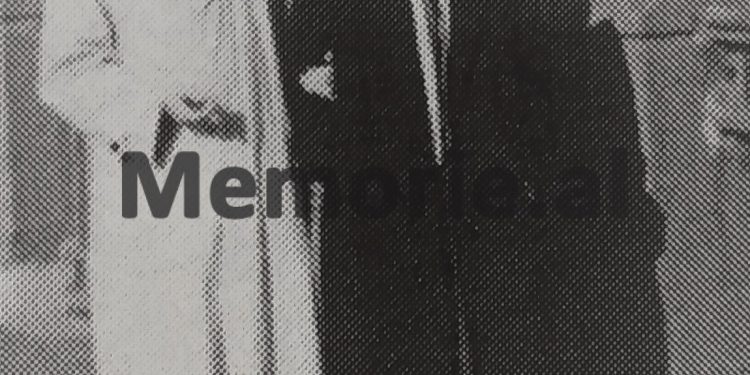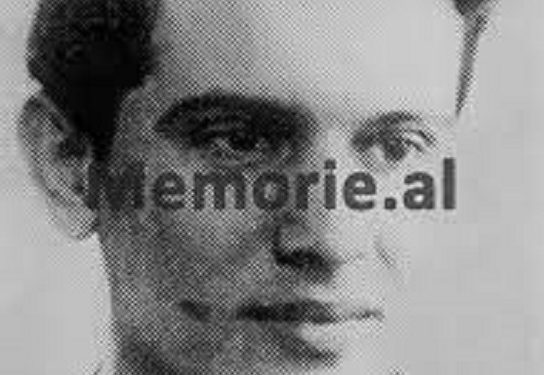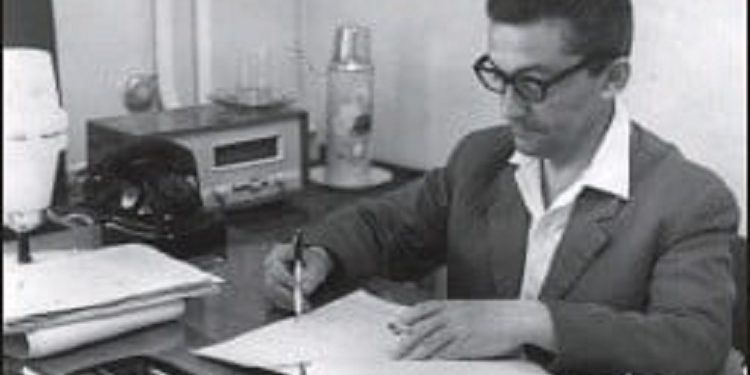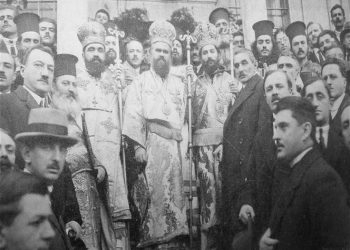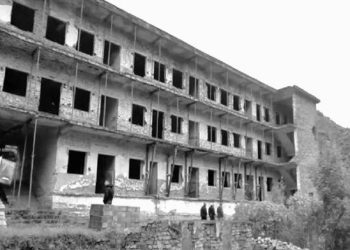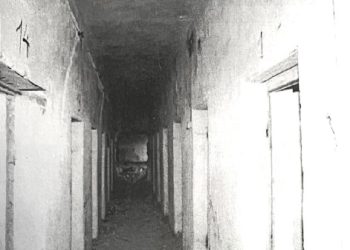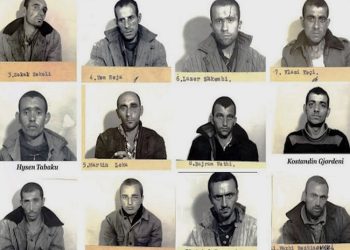By Bashkim Trenova
Part twenty-five
Memorie.al publishes the memoirs of the well-known journalist, publicist, translator, researcher, writer, playwright and diplomat, Bashkim Trenova, who after graduating from the Faculty of History and Philology of the State University of Tirana, in 1966 was appointed a journalist at Radio- Tirana in its Foreign Directorate, where he worked until 1975, when he was appointed journalist and head of the foreign editorial office of the newspaper ‘Zeri i Popullit’, a body of the Central Committee of the ALP. In the years 1984-1990, he served as chairman of the Publishing Branch in the General Directorate of State Archives and after the first free elections in Albania, in March 1991, he was appointed to the newspaper ‘Rilindja Demokratike’, initially as deputy / editor-in-chief and then its editor-in-chief, until 1994, when he was appointed to the Ministry of Foreign Affairs with the position of Press Director and spokesperson of that ministry. In 1997, Trenova was appointed Ambassador of Albania to the Kingdom of Belgium and to the Grand Duchy of Luxembourg. Unknown memories of Mr. Trenova, starting from the war period, his childhood, college years, professional career as a journalist and researcher at Radio Tirana, the newspaper ‘People’s Voice’ and the Central State Archive, where he served until the fall of the communist regime of Enver Hoxha, a period of time when he in different circumstances met many of his colleagues, suckers of some of the ‘reactionary families’, etc., whom he described with a rare skill in a book of memoirs published in 2012, entitled ‘Enemies of the people’ and now brings them to the readers of Memorie.al
Continued from the previous issue
“Enemies of the people”
The blow of Vangjush Gambeta, like Koço Theodhos’s brother-in-law!
Hamdiu was appointed Deputy Editor-in-Chief after, in 1975, Vangjush Gambeta, the former Deputy Editor-in-Chief, was expelled from the newspaper. Gambeta had 20 years of work in the newspaper. Initially he was head of the Economy Sector. He was one of the clearest minds in economics and a talented journalist. The dictator himself had boasted of his economic analysis. Thus, he was appointed Deputy Editor-in-Chief. One day everything collapsed as if it had never existed. By order from above, the basic organization of the newspaper party gathered to condemn Vangjush Gambeta as an “enemy of the people”! In his memoirs, writing about this meeting, Gambeta coldly and correctly conveys its atmosphere. He knew that they would address him with the words: “Speak, Vangjush, open the Party, be honest, the Party is generous, it will help you, if you will help the Party too”.
Vangjush Gambeta was the brother-in-law of Koço Theodhos, a member of the Politburo and Deputy Prime Minister. Enver Hoxha, after hitting some so-called hostile groups, after imprisoning and executing many regime personalities as participants in these groups, decided to devise the elimination of the so-called “hostile economic group”. At the head of this group he placed two figures with rich professional and state careers, two deputy prime ministers of the time, comrades in war and allies, who had stood by him, Abdyl Këllez and Koço Theodhos. They were executed as traitors; their bones disappeared so as not to leave relatives to place even a rose on their graves.
At the meeting organized in “Zeri i Popullit” to condemn Vangjush Gambeta, it was said that he had helped Koço Theodhosi prepare the self-criticism that he would do before Enver Hoxha, on the day of his trial as an enemy and traitor. This charge did not need to be proven, nor could it be proven. The decision was made for him. Vangjush Gambeta was first sent to Xiber, then to Derian i Matit, in the Northern Highlands of Albania. In these remote provinces, but with good people, he spent 15 years separated from his wife Violeta and only 9 or 10 year old son, Artan. There they put him to clean the thorns. He lived in a naked room, without heat, without a bed to relax his bones, spending New Year’s nights alone with a piece of bread and some cheese. So writes Gambeta himself in his memoirs, where he does not forget to add how, on such an evening, at night, late the door knocks and he is terrified that they had not gone to arrest him.
Indeed, when he opened the door, he saw a mountaineer in front of him. He quickly left something wrapped in paper in his hand and fled, as it came, quickly. The highlander, who could not invite Gambetta to spend New Year’s Eve together, had brought him a piece of meat and some pieces of the pie, prepared by his wife. A former student of his, who saw Gambeta in the depths of the Xibri Mountains in those years, wrote that he remembers “among a crowd of wanderers of the colored race, he stayed with them, slept with them, lived there for days all in misery”. His life was not easier even in Derian i Matit, where the small Gambeta, “barefoot, drank coffee alone”! This is what those who knew him in those years wrote.
Vangjush Gambeta had not made any article that was not liked or, say, criticized as wrong, as harmful to the regime and socialism. He had not whispered in any word or half a word against what was trumpeted as the happy life of the Albanians led by the Party and its great chairman, Comrade Enver. He was a scientific authority, revered and respected, correct in public and private life. You had no way of calling him an “enemy,” but he was nevertheless condemned as an enemy. He was forced to make a gulag life. He surely, if the democratic changes had not taken place, would have died somewhere deep down in the northern highlands, forgotten, denigrated. The dictatorship would not have allowed him to see his wife and son once again, to apologize for a crime he did not commit, but which crippled their lives as well. They were listed among those who should neither be told a “good morning” alive, nor should they be told “rest in peace” after death.
With the start of the Democratic Movement, Gambeta came down from the mountain, became one of the co-founders of the Republican Party, one of the first parties in opposition to the dictatorship. He also became the first editor-in-chief of this Party newspaper. Very soon, in 1993, he retired from political life and devoted himself to his memories. Apparently he was disappointed by politics even in democracy. Before his death he left a last will, to be buried in a grave with his wife, Violeta, my beloved music teacher at the “Kongresi i Lushnjes” school. There was no one to separate them, they would be together forever. I did not have the opportunity to know Vangjush Gambeta personally when he worked in “Zeri i Popullit”. I knew him in the occasional meetings we had as employees of two opposition newspapers, “Rilindja Demokratike” and “Republika”.
Expulsion from Tirana of the deputy editor-in-chief of “Zeri i Popullit”!
I did not have the opportunity to get to know Gambetta’s successor, Hamdi Sollaku, well in “Zeri i Popullit”. Not long after Gambeta, as I mentioned a little above, Hamdi was expelled from Tirana, from the newspaper and from the position of deputy editor. He, however, was treated differently. In 1976 Hamdi Sollaku was appointed editor-in-chief of the newspaper “Adriatiku” of the city of Durrës. His departure, like that of Pascal, was linked to the “discovery” in 1975 of the “group of saboteurs and enemies” in the oil sector! Hamdi’s brother, named Xhavit, was arrested along with others as a member of this imaginary group. He, as it was officially said, was shot. It is interesting to know that a decision is found for his death sentence, but not an act-execution of this decision. Based on this fact, there has been a lot of talk about the end of Xhavit, not as a result of a court decision, even a formal one, but as a result of his massacre in the Internal Branch of Fier, ie, in the branch of the Ministry of Works Interior in this city. The court decision is thought to have been drafted afterwards. To say he was a true encyclopedia and a man to arouse respect.
I had no direct working relationship with Hamdi. I kept some impressions for as long as we continued to work together in “Voice of the People”. He was quite hardworking and human. He did not pose to impose himself, he knew how to respect others, and he was very polite to journalists, generally young people. Hamdiu educated a whole generation of journalists, who made a name for themselves in “Zeri i Popullit”. Even when making remarks about articles, he used language and tact so fine that he seemed to step on the dew. Even the timbre of his voice seemed timid, as if reserved. Without suspecting his unpretentious demeanor, sometimes when you look at his positions, one gets the impression that he was deeply frightened, that he was awaiting a sentence that had not yet been announced, that it was not known when it would be announced, but that would arrive one day. Was there any kind of paranoia in him? Rather I would think that the post itself, which he had before coming to “Zeri i Popullit”, secretary of Enver Hoxha, had made him well acquainted with the mechanism of what was called “class war”, with the scenes and behind the scenes of its. Perhaps, knowing this reality well, faithfully serving a paranoid, he was forced to “advise” even with fear, to be more than careful.
Before coming to “Zeri i Popullit”, Hamdi Sollaku was one of the most trusted not only of the regime, but also of the dictator himself. He was removed from the post of dictator’s secretary because his two brothers, Nuri and Abdulla Sollaku, were arrested in April 1965. They were accused of trying to escape from the shores of Lake Ohrid, on the Albanian-Yugoslav border. The attempted escape was considered a betrayal of the homeland and if he was not killed by the Albanian border soldier, the attempter was punished. According to the Criminal Code, copied from that of Stalin, the sentence ranged from 10 years in prison to death. Abdullah was sentenced to 18 years in prison, while Nuriu to 16 years. Both, during imprisonment, were convicted again on charges of “agitation and propaganda”. The absurdity is that in prison, prisoners opposed to the regime should have been satisfied with it, satisfied with the imprisonment; otherwise their sentence would have been increased indefinitely, until the end of their lives. Hamdi’s brothers each suffered about 25 years in prison. They were released after the fall of the Berlin Wall, on the eve of the overthrow of communism in Albania, when the gears of the “class war” were finally rusted by the blood they had shed.
After being released from prison, Abdullai and Nuriu left Albania. Abdullai went to Germany where he translated into Albanian several publications on the crimes of communism and Stalinism. Nuri went to Prague. There he had known his first and only love. There, being a student, he met Vllasta, a Czech student, they were engaged and waiting to get married. The breakdown of Albanian-Soviet relations in the early 1960s condemned this love, as well as all other ties between Albanian men and women in the countries of the former Soviet bloc. Nuri did not want to succumb to the fate dictated by politics. This is also why he tried to escape. He simply tried not to abandon what they had sworn to bind to life, to follow the reason of the heart and not the dictatorship.
As far as I know Hamdi, he was and remained a communist until his last days. He, as a teenager, embraced communism with a blind faith, without knowing it at all, and died in complete blindness, without drawing any lessons from the murderous communist reality. He experienced with pain the overthrow of communism in Albania, but he was not a man without character, he was not an arrivalist, a criminal. An old friend of mine told me that after the IV Plenum of the Central Committee of the Party, Hamdi Sollaku was charged by the apparatus of the Central Committee, to check the materials broadcast by the Information Department of Radio Tirana, during the time when the general director of Radio Television had been Todi Lubonja. As it is known, after this infamous Plenum, the Party was hungry to eat the “heads of enemies”, which had to be discovered and unmasked without mercy! Hamdiu had to reveal the “hostile activity” of Todi Lubonja in the Information Office as well. If he were a masquerade, he would find the “enemies” in this editorial office as well, and he would be thanked for his vigilance, for his service to the revolution and the socialist homeland! He did not do this because he did not want others to enter the prisons of the dictatorship.
After the overthrow of the dictatorship, several denigrating articles about Hamdi were published in the right-wing press. I think that their authors were started only for pragmatic political motives. These articles were published only because Hamdi, after the overthrow of the dictatorship, did not cease his activity as a journalist and published some critical articles on current affairs. He did not stop writing, especially, about the years and heroes of the Anti-Fascist National Liberation War. I do not know if he wrote or said a word about his brothers, if he ever felt pain for their fate, if he ever cursed fate while he could not curse the regime, if he made them responsible for their lives and his own. He took the silence with him until his last silence!
While Abdullah has spoken about Hamdi, I do not know that Nuri has said anything about him. It seems to me that he too has chosen silence; he did not want to go back to the past, to remember his tragedy and that of his whole family. He did not find the past in Prague either, simply because the past does not exist, simply because it comes as a memory, as a pain, as despair, simply because the past has lived its life and life does not return to the past. Were glorious, a dream, even if they mocked him, or put him on the guillotine, if they condemned him bound with barbed wire.
The Sollaku family was associated with the Anti-Fascist National Liberation War. Its members fought with weapons for the expulsion of the Nazi-fascist occupiers and for the establishment of power, so-called popular, after the liberation of the country. They did not rise up against him with weapons or words, calling him their power, but this power killed them, massacred them, called them “traitors and enemies”, unjustly, as well as thousands upon thousands of families other Albanians. This pharaonic power, which did not know how to produce happiness, well-being, harmony, constantly produced misery, misery and oil, the desire to fall in love with death as the only way to escape from it. I read somewhere how a mother, that of Don Lazër Shantoja, could not see her son in the investigator tied to a chair, with broken legs or thrown to the ground in a cell amidst filth. Leaning against the barred door, she said to her son’s executioners: “Kill me, please kill me, and do me this kindness … Please does not leave my son like this”!
Qako Dango and the journalists of “Zeri i Popullit”, which I found in the newsroom!
When I started working as a journalist in the Foreign Sector of “Zeri të Popullit”, in addition to Ajet Simixhiu, the head of the Sector and at the same time the deputy editor of the newspaper, Qako Dango, Taqo Zoto, Fatmir Kumbaro and Vladimir Prela also worked there at that time. Qako was the oldest. He was about 55 years old and was looking to retire early. “I can no longer hold the pencil in my hand,” he told me. He was a veteran of the Voice of the People. He had a special mood. When he wanted to show something to laugh about, he first rubbed his hands. We knew this was the signal and we waited. In the end, after the story was over, we had to repeat the refrain: “Lipsu say!”. He repeated this behind us emphasizing it more forcefully. As he joked, he also accepted jokes. I remember the newspaper photographer, Pandi Cici. He often came to the Foreign Sector. He liked to itch with Qako. Once he brought a bag of pennies with him and hung it on the back of the armchair where Qako was sitting. Pandi said that Qako was ready to die of fear every day and to help him get rid of this daily fear, he had put in the bag as many grains as there were days left for him to live. According to him, Qako had to throw a penny every day from the window into the street. Thus, when he reached the last grain, he would know that it was his last day. Pandi thus freed Qako from the fear of other days! “Do not waste it, take it because you spend a lunch with the penny you have in the bag”, Qako told him, adding: “Do not let them tell you!”
Qako was careful when he wanted to say something that might put him in danger. He spoke to me, for example, about the editor-in-chief, Xhelil Gjoni, telling me that as a journalist, he was lazy and did not carry out the plan of articles that he had to submit to the Editorial Office, but that he was promoted because he was married Lumton, sister of Hysni Kapos, one of the three main leaders of post-war Albania. He mocked Sophocles Lazri, the dictator’s top foreign policy adviser. He boasted that the editorial articles, which were brought for publication in the newspaper by the Central Committee of the Party, were written by him. Qako found a way to tell him that we will see these articles after a few years published in the works of Enver Hoxha. He told Sofos that these articles were either written by Enver Hoxha, or that he was simply an anonymous writer in the service of the dictator. Qako did not spare the Central Committee either. If he saw me worried because the messages that came from there had to be materialized in the articles, Qako would tell me: “Do not worry. If you look at my blocks, they are filled with the same messages, the same words for decades. Those who give these messages are the first to forget them”!
When he told me about such things, after he had finished telling, he did not forget to tell me: “I did not tell you anything. “If you are going to talk about this with someone else, I will say that you are slandering, that you are intriguing, etc.” After these words he laughed out loud and did not forget to rub his hands. Qakos was once told to speak openly, to say what he thought about the work and the leaders of the newspaper, to put a lightning bolt, i.e., an Albanian dacibao. Qako, laughing, had cleverly said: “Why, am I left?”Have you ever seen lightning fall from the bottom up?” He had been told at a meeting of the Party organization to criticize his comrades. “And why should I criticize them”, Qako had said. ‘Look, I have criticized Javer Malon for laziness and he will go ambassador to France. Why should we criticize the lazy, and then appoint them ambassadors?
I have two letters from Qako in my personal archive. Both are permeated by his concern for work as well as by his characteristic humor. In one of the letters, among other things, he writes: after the day, so I sent the plan to the printing house with shortages. No more than 50 lines are needed…! If I leave on the table your article, which the editor-in-chief saw and I completed two small things yesterday. He told me yesterday to publish it for tomorrow, but I told him that as long as we have the speech of the prime minister, it is not good to have another article (when the balls fall, the doubles are not heard). We are leaving the article for the day after tomorrow. Lipsu! ” In the letter, dated July 19, 1979, Qako wrote to me: “The bosses are to blame, because without them it is not possible, therefore we are not leaving you comfortable even on the beach. The editor-in-chief asked: “The Union made the article itself”?! And you put him in trouble because he wants to know where you got Lenin’s quote, which says: “These differences will still exist for a long time, even after the establishment of the dictatorship of the proletariat on a global scale.” Comrade Agim, doubts whether this was said by Stalin and not Lenin, so he insisted on knowing where the quote came from! We are trying to take advantage of aid stocks and keep the site up. Greetings to you and family. For the team: Qako Dango”.
Qako Dango worked all his life as a journalist, correct at work and in social relations. He is probably the only one who started working for “Zeri i Popullit” as a journalist and retired as such. From the Foreign Sector, for example, Taqo Zoto, Fatmir Kumbaro and Vladimir Prela were promoted one after another. Taqo became director of the Albanian Telegraphic Agency. He was summoned one day to the Central Committee of the Party, the one who would succeed the dictator on the throne of power, Ramiz Alia. He announced his appointment to the new post. Taqo was a simple man, quite polite and without career ambitions. As a rarity in similar cases, he told Ramiz Alia that he was incapable of such a task. Ramiz told him that the Party wanted loyal people and that he was like that, that was enough. Taqo was married to the daughter of a dictator’s cousin. He never used this “card” himself, but others, servile to the dictator, could not let it burn. This is how Taqo left “Voice of the People”. In his place came Ilir Bocka, who worked as an editor in the Foreign Sector of the Albanian Telegraphic Agency. Illyrian worked very little in “Voice of the People”. He moved to the Foreign Ministry where he embarked on a rich diplomatic career.
After finishing the internship of the Party candidate, Fatmir Kumbaro also left “Zeri i Popullit”. He began working at the Institute of Marxist-Leninist Studies, headed by Nexhmije Hoxha, the wife of Dictator Enver Hoxha, who, apparently, was nicknamed the “black panther” for the blacks she had done to her people. After the overthrow of the dictatorship, Fatmir remained for a short time in the leadership of the Socialist Party, which was a continuation of the Labor Party. As I think, as far as I know Fatmir, he quickly realized that politics was not his field. Fatmir was a courageous, upright and open man. At the Institute of Marxist-Leninist Studies, when the deputy director, Ndreçi Plasari, was criticized, he was the only one who came out in support of him; he was the only one who continued to associate with him, to run with him in the hills of the capital, near the Artificial Lake. Likewise, when during the period of democratic transition the Socialist Party came to power and Fatos Nano became prime minister, his friend at the Nexhmije Hoxha Institute, he openly told Fatos to leave the post of prime minister, that this post was not for him, and held only the post of chairman of the Socialist Party. Instead of Fatos leaving office, Fatmir left the Socialist Party leadership. He was appointed ambassador to Sofia.
Even Vladimir Prela, after finishing the internship of the Party candidate, left the newspaper. He was appointed deputy director of the Institute for the Study of Foreign Relations, headed by Sofokli Lazri. This Institute was part of the Ministry of Foreign Affairs. I think Vladimir or Ladi, as we socially called them, found themselves in the new job. He was a diplomat even without being officially a diplomat. He probably inherited the same diplomatic education from his father, Rakip Hoxha, who, among others, was consul in Istanbul. After the political changes as a result of which Albania entered the path of democratic development, Vladimir has exercised several high state functions, such as the Director of the Cabinet of the Prime Minister, advisor to the President of the Republic, Charge d’Affaires in Kosovo and recently, since 2003, that of the Ambassador of the Republic of Albania to the Republic of Macedonia. Ladi died suddenly while waiting to be appointed to a new diplomatic post. Memorie.al
The next issue follows




